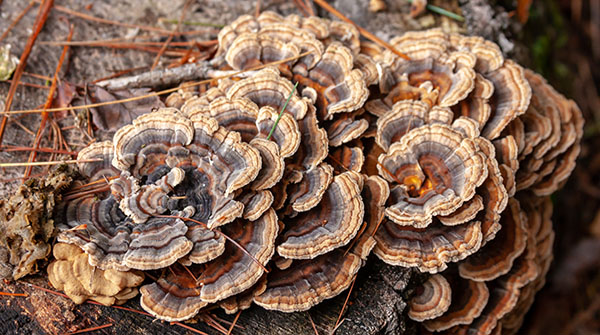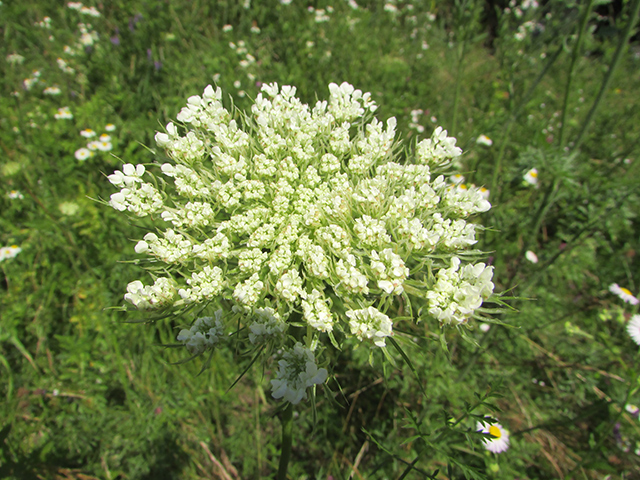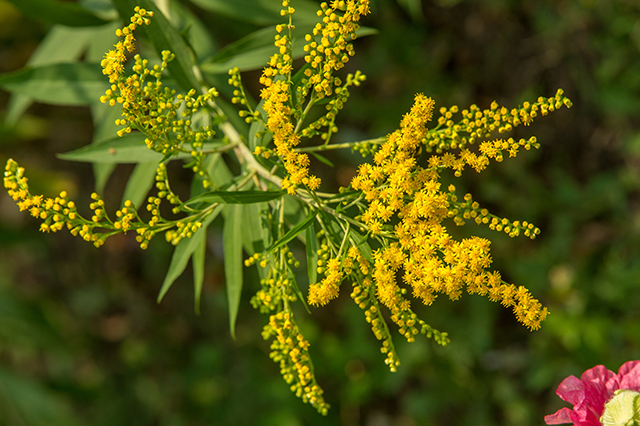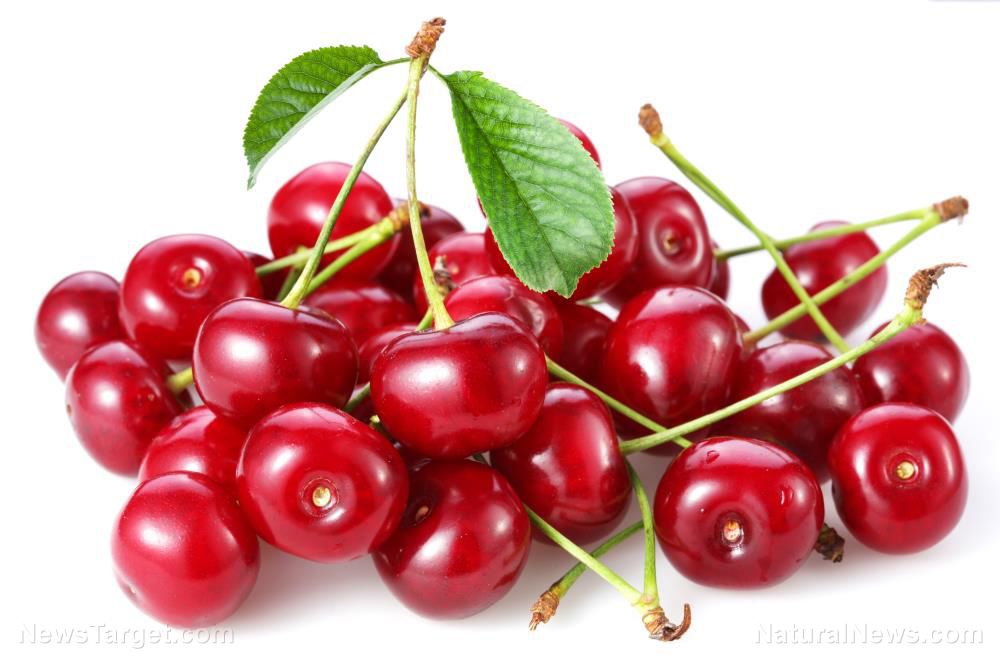12 Medicinal herbs and spices that can boost the immune system
06/08/2023 / By Evangelyn Rodriguez

Many edible herbs and spices contain high amounts of bioactive compounds that possess antibacterial, antifungal, antiviral, antioxidant and anti-inflammatory properties. All these properties are important not only for maintaining overall health, but also for supporting healthy immune defenses. In addition to these phytonutrients, medicinal herbs and spices can provide a variety of essential nutrients that are crucial for optimal health.
As you age, your immune system naturally weakens: Production of B and T cells in your bone marrow and thymus greatly decreases, and mature white blood cells (lymphocytes) in secondary lymphoid tissues gradually diminish in function. B cells are the immune cells responsible for producing antibodies, while T cells are important for antigen recognition and immunological memory. Both these cells play a huge role in keeping you safe from infectious diseases.
Because of this natural decline in immune function, older adults are not as resilient as younger ones against infection. Fortunately, they can turn to foods and supplements for the immune support they desperately need.
Here are 12 herbs and spices that have been found in multiple studies to help boost the immune system:
Astragalus
The flowering plant Astragalus membranaceus is an important immunomodulatory herb in Traditional Chinese Medicine (TCM). Studies show that astragalus can promote the proliferation of B cells and enhance the activity of cytotoxic T lymphocytes (CTL). CTL responses are a crucial component of the immune system’s response to viral infections. (Related: Astragalus alleviates inflammation and side effects of chemotherapeutic agents.)
Black cumin
The seeds of the Nigella sativa plant are widely used as seasoning in India, the Middle East and parts of North Africa. They are also known for their oil, which boasts antibacterial, antioxidant, anti-inflammatory, anticancer, analgesic and immunomodulatory properties.
Studies show that black cumin seeds contain compounds that can stimulate the proliferation of human peripheral blood monocytes. These immune cells are mobilized from the blood marrow to affected tissues during an infection to help bolster host defenses. When used as a supplement, black cumin seeds can also strengthen the immune system.
Black pepper
The fruits of the flowering vine Piper nigrum are used to make one of the most widely used seasonings in the world: pepper. Black pepper pungency comes from its principal component, piperine, which possesses many health-supporting properties, including immunomodulatory activities.
According to a study published in Applied Sciences, piperine can help restore immunocompetence, or the ability to mount a normal immune response, following exposure to immunosuppressive drugs. Piperine has also exhibited anti-allergic activities and has been found to relieve allergic symptoms like sneezing, rubbing and redness.
Chamomile
Matricaria chamomilla, or German chamomile, has a long history of use in traditional medicine. Known for its calming effects, chamomile tea is used to this day as a natural remedy for anxiety as well as a natural sleep aid.
According to an animal study, chamomile extracts can increase total white blood cell count. The herb can also reverse immune suppression caused by certain medications, thanks to its immunomodulatory activities.
Cinnamon
Two species of cinnamon, Cinnamomum zeylanicum (true cinnamon or Ceylon cinnamon) and C. cassia (Chinese cinnamon), are often used in various TCM preparations. Both species have also been extensively studied for their beneficial properties.
In a study published in Scientific Reports, researchers found that the essential oil derived from true cinnamon has immune-stimulating properties that can help stop tumor growth. Meanwhile, a separate study found that cinnamaldehyde, the active component of Chinese cinnamon, can protect immune cells from oxidative stress and prevent chronic inflammation.
Cloves
The aromatic flower buds of the Syzygium aromaticum tree are a popular spice often used in soups, stews, sauces and rice dishes. Eugenol, an active compound in cloves, is known for its remarkable anti-inflammatory, antioxidant, antimicrobial and immunomodulatory properties.
According to a study, eugenol can support healthy immune function by stimulating peripheral blood mononuclear cells, which include T cells, B cells and other immune cells, to produce the proper response in the face of threatening entities, such as cancer cells.
Elderberry
The flowering plants from the genus Sambucus have long been used in folk medicine as a remedy for colds and flu. Their medicinal use has a scientific basis as recent studies have shown that elderberry is rich in compounds with antiviral properties. Elderberry compounds work against cold and flu viruses by blocking their entry into human cells, which effectively prevents them from replicating.
Other studies have also found that, depending on which part of the herb was used, elderberry can either induce or inhibit inflammation. The polyphenols in elderberry have been shown to boost immunity by increasing lymphocyte production in animal studies.
Garlic
Garlic (Allium sativum) is one of the best examples of an immune-boosting superfood. According to studies, garlic can enhance immune function by stimulating various immune cells, such as macrophages, lymphocytes, natural killer cells, dendritic cells and eosinophils. Garlic can also provide immune support by helping regulate critical immune cell functions, such as the production of immunoglobulin, the secretion of cell-signaling molecules and the ingestion of foreign particles (phagocytosis). (Related: Clementine, ginger and garlic: Boost your immune system with powerful food cures.)
Ginger
Another pungent spice with a lot of immune benefits to offer is ginger. The root of the Zingiber officinale plant also has a long history of use in folk medicine, mainly as a remedy for colds, migraines, nausea, arthritis and high blood pressure.
According to a study by German researchers, ginger contains a compound called 6-gingerol, which can stimulate immune cells via a specific receptor. Because 6-gingerol is able to do so at very low concentrations, the researchers believe that drinking ginger tea regularly is a great way to boost your immunity.
Licorice root
The root of Glycyrrhiza glabra, a flowering plant from the legume family, is traditionally used to treat respiratory and digestive issues. But recent studies suggest that licorice root can also be used to support healthy immune function.
According to a review published in Acta Pharmaceutica Sinica B, licorice root contains two triterpenes that can inhibit viral gene expression and replication. The herb also contains flavonoids that can inhibit the growth of bacteria and their production of toxins. But most importantly, licorice root is home to compounds that can enhance the activity of immune cells and promote the proliferation of T lymphocytes.
Purple coneflower
Echinacea purpurea is a flowering plant that belongs to the daisy family. For centuries, Native Americans have relied on this herb to give them relief from various ailments. Today, purple coneflower still finds use as a natural remedy for the common cold, flu, inflammation, migraine and other minor health issues.
Purple coneflower’s immune-supporting properties are well-documented. Multiple studies have found that it is effective against bacteria that cause respiratory infections. The herb has also exhibited antifungal activity against two opportunistic fungal pathogens, namely, Candida albicans and Saccharomyces cerevisiae.
In terms of immunomodulatory activity, research shows that purple coneflower can promote the activity of neutrophils, macrophages and natural killer cells, which are all involved in your body’s innate (non-specific) immune response.
Turmeric
One of the most popular medicinal herbs on the planet, the root of the Curcuma longa plant is widely studied for its many health benefits. Among these benefits is the ability to strengthen the immune system and suppress inflammation when necessary.
According to a study by Italian researchers, the immunomodulatory properties of turmeric come mainly from curcumin, its most active component. Curcumin has been found to “cooperate” with various immune cells in order to bolster immune response against threats.
And in cases where it’s needed, curcumin has shown that it can also help suppress inflammation through different mechanisms. These activities make turmeric one of the best herbs for supporting optimal immune function.
Just like the rest of your body, your immune system needs and deserves every bit of support you can give, regardless of whether you are healthy, young or in your golden years. Medicinal herbs and spices offer an easy, natural means of providing much-needed assistance to your immune system as they can simply be added to your meals or taken in supplement form.
Learn more about foods that can boost immune health at Superfoods.news.
Watch the video below to learn about how gut health affects the immune system.
This video is from the Hotze Health channel on Brighteon.com.
More related stories:
Sleep charges your immune system.
Strengthen the immune system with these 12 superfoods.
The impact of lifestyle behaviors on a person’s immune system.
Boost your immune system and overall health naturally with ginger.
Understanding the effects of purple coneflower (Echinacea) on the immune system.
Sources include:
Submit a correction >>
Tagged Under:
aging secrets, alternative medicine, food cures, food is medicine, food science, health science, herbal medicine, Herbs, immune system, natural cures, natural health, natural medicine, Spices, supplements
This article may contain statements that reflect the opinion of the author
RECENT NEWS & ARTICLES
COPYRIGHT © 2017 PHYTONUTRIENTS NEWS





















